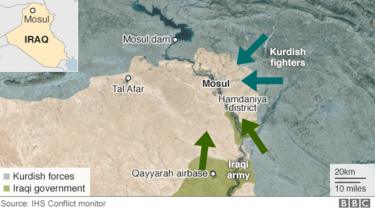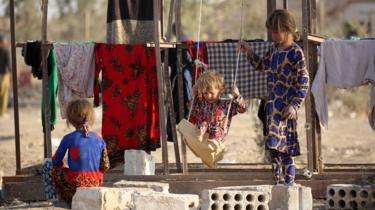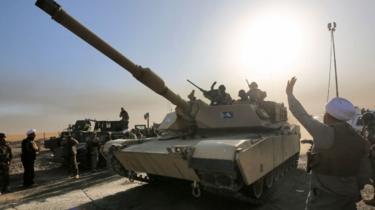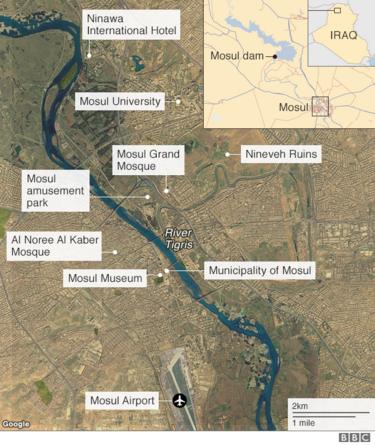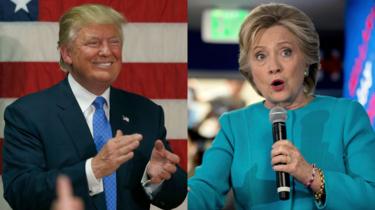 AP
AP
I'm going to do a Boris. That is to say looking both ways at once.
Let me explain for those of you who don't know what that means: Ahead of the referendum on Britain's membership in the EU, Boris Johnson, now the UK's foreign secretary, wrote two articles for the Daily Telegraph - one arguing why Britain should leave, the other why it should stay.
While he prevaricated and wrestled (and maybe gave a passing consideration of what would be best for Boris's career), the British people waited to hear from the most charismatic and influential man in British politics. He eventually published his column backing Brexit, but the latter leaked this week.
So in that spirit, I am going to write the two blogs of why Donald Trump is going to win the presidential election - and why he isn't.
- For more Election 2016, follow Jon Sopel on Twitter.
Why he's going to win
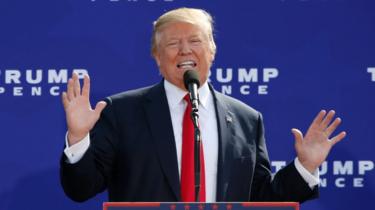 GETTY IMAGES
GETTY IMAGES
Yes, Donald Trump is behind in the polls, and the past two weeks of his campaign have stunk. But look at where we are as the smoke (and there's been a lot of that) clears from the battlefield. Donald Trump is still standing.
Any other conventional candidate would have been destroyed by what he's been through. But the remarkable thing is not the extent to which his support has gone down, the astonishing thing is how rock solid it remains. He has a seemingly unshiftable 37%.
He needs to grow that by 10% to win. Impossible? Not at all.
Remember polling is not exact science. The pollsters take raw data and season it with salt and pepper and spices. Their modelling looks at people who might be under represented, who might not be picked up by telephone or online polling. But many of the people who waited in line to vote for Trump in the Republican primaries were individuals who had been lost to the political process for years - they are probably not part of an opinion pollster's sampling group.
There is also the phenomenon of the 'shy' Trump supporter.
When I was the BBC's Paris Correspondent in 2002, the National Front candidate, Jean Marie Le Pen did far better than anyone expected when he beat the socialist into the final round of voting. It caused an earthquake. What happened? Clearly far more voters supported his tough line on immigration control than they were telling the pollsters.
It was the same in the UK general election in 2015. The polls just didn't pick up how many people were going to vote Conservative. The polls may just be massively understating support for Donald Trump.
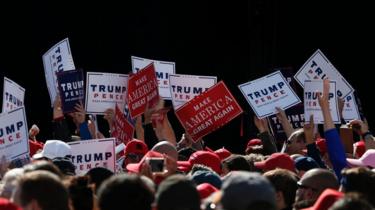 GETTY IMAGES
GETTY IMAGES
Then there is enthusiasm. All the most enthusiastic supporters are with Trump. There is no fervour for Hillary Clinton.
The polls suggest as many as 15% are undecided. But surely if you're going to vote for the Democratic party candidate, what is there left to know? She is conventional, her positions are well known. Voters have nothing new to learn about her.
Surely the bulk of these undecided voters are hoping to see something in Donald Trump that will allow them to vote for him. A bit of reassurance. A bit of presidential mien. A bit of discipline and focus amid the firecrackers.
Trump has not been destroyed by the slew of sex abuse allegations, the awful tape on the bus, nor the disclosures that he may not have paid federal income tax for the best part of two decades.
But what if something bad emerges about Hillary in the last three weeks of campaigning? The Wikileaks disclosures from the hacked emails have so far been in the mildly embarrassing category. What if there is worse to come? What if the attention suddenly switches to Hillary. She does not have the same Teflon coating that Trump has. There is a profound weariness with conventional politics and business-as-usual. Americans are yearning for change.
Hillary Clinton stands for everything that Americans are sick of. Her supporters are heading to the polls to vote for her with no great enthusiasm. She is there for the taking. And that is why Donald Trump is going to win on 8 November.
Why Donald Trump is going to lose
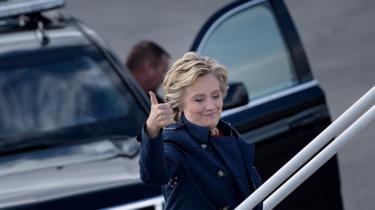 GETTY IMAGES
GETTY IMAGES
The polls are moving in a clear direction. The flirtation that the American people have had with going for the most radical choice ever for president has run its course. Yes he has a base that's fired up, but he is marooned at that level.
And he's going to lose not because the election is rigged, as he has taken to alleging in the past few days, but because more Americans in the key battlegrounds are going to vote for Hillary than they are for Donald.
There is NO evidence of voter fraud. Look at the studies. One study that took place over the course of a decade found only 31 examples of voter impersonation across the whole country.
Also if you ever want a sign of resignation in Trump HQ - surely it is making such arguments. We didn't hear anything like this from the Republican nominee a month ago when the race was competitive. Also forget the national polls, it's the fight in the battleground states that matter - and look at what is happening.
Trump has already pulled out of Virginia, support from women in Wisconsin has fallen through the floor - and the Democratic Party, far from retrenching into fewer states, is looking to expand its advertising spending in Georgia and Arizona - even deep red Texas is being eyed as a possible target.
The whole strategy of Hillary Clinton now is "do no wrong".
It may not be exciting. She has hardly been seen the past few days. Why? Because she's happy for the focus to be entirely on Donald Trump. She will be disciplined, focused and will shy away from getting into any unnecessary scraps. She will duck any direct confrontations - and she will allow her formidable team of conduits to do a lot of the heavy lifting.
The most passionate denunciation of Donald Trump's behaviour to women has not come from Hillary Clinton but from Michelle Obama. She has a great line up of support.
And she has been hugely successful in her ads and her campaigning to continue to punch Donald Trump where it hurts most. Is this man suitable to become president? Polls show something like two-thirds of Americans think he isn't.
She also has the ground game.
Forget the windy rhetoric, the flag waving, the high sounding dreams and the low whispered scares, politics is about the grunt work. The knocking on doors, the calling people up, the getting them to register. It's the machine.
And just compare how well organised Hillary is to Donald? She has far more offices, more strategically situated, with more staff and better funding. Donald Trump on the other hand has a haphazard operation, and seems to be at war with big sections of the Republican Party whose machinery he is dependent on.
And that's why Donald Trump is going to lose on 8 November.
Now when Boris wrote his two accounts, he said he held them both up to the light and it became blindingly obvious to him why one the argument to leave the EU was so much more powerful.
I think both my arguments are pretty convincing.
